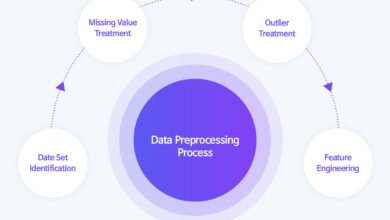
The landscape of enterprise AI applications is rapidly evolving, fundamentally transforming how businesses operate, compete, and deliver value to customers. Enterprise buyers are seizing the moment, pouring $4.6 billion into generative AI applications in 2024, an almost 8x increase from the $600 million reported last year, demonstrating unprecedented adoption rates across industries. As we move deeper into 2025, business leaders must understand that artificial intelligence is no longer a luxury—it’s a strategic imperative that determines market position and operational efficiency.
Enterprise AI apps represent sophisticated software solutions designed specifically for large-scale business operations, integrating machine learning, natural language processing, and automation technologies to enhance decision-making, streamline workflows, and boost productivity. These applications extend far beyond simple chatbots or basic automation tools, encompassing comprehensive platforms that can transform entire business functions from customer relationship management to supply chain optimization.
The current market dynamics reveal compelling statistics that every business executive should consider. Enterprise leaders expect an average of ~75% growth over the next year, while Gartner predicts that by 2028, 33% of enterprise software applications will include agentic AI—digital agents that can autonomously perform complex tasks and make decisions on behalf of users—a significant leap from less than 1% in 2024. This exponential growth trajectory indicates that organizations not investing in AI solutions risk being left behind by more agile competitors.
Which Enterprise AI Apps to prioritize requires strategic thinking about both immediate operational needs and long-term business objectives. The most successful implementations focus on areas where AI can deliver measurable ROI while enhancing human capabilities rather than replacing them entirely. From intelligent CRM systems that predict customer behavior to automated workflow platforms that eliminate repetitive tasks, the right AI tools can unlock unprecedented levels of efficiency and innovation across your organization.
Enterprise AI Applications
What Are Enterprise AI Apps
Enterprise AI Apps are sophisticated software platforms specifically designed to address the complex operational challenges faced by large organizations. Unlike consumer-focused AI tools, these solutions integrate seamlessly with existing business systems, handling massive data volumes while maintaining enterprise-grade security, compliance, and scalability requirements. These applications leverage advanced artificial intelligence technologies, including machine learning algorithms, natural language processing, computer vision, and predictive analytics, to automate processes, enhance decision-making, and drive strategic outcomes.
The fundamental difference between enterprise AI apps and traditional business software lies in their adaptive learning capabilities. While conventional applications follow predetermined rules and workflows, AI-powered solutions continuously learn from data patterns, user interactions, and business outcomes to improve performance over time. This dynamic evolution makes them particularly valuable for handling complex, variable business scenarios that require nuanced decision-making.
Key Characteristics of Enterprise AI Apps Solutions
Scalability represents the cornerstone of effective Enterprise AI Apps. These platforms must handle thousands of simultaneous users, process petabytes of data, and maintain consistent performance across global operations. Enterprise search: Lets employees instantly find the information they need with natural language processing · Real-time analytics: Delivers insights for better decision-making, showcasing how modern AI solutions combine multiple capabilities within unified platforms.
Integration capabilities ensure enterprise AI apps work harmoniously with existing technology stacks. Whether connecting to legacy ERP systems, modern cloud platforms, or specialized industry tools, these applications must seamlessly exchange data and trigger actions across multiple systems without disrupting established workflows.
Security and compliance features address the stringent requirements of enterprise environments. Enterprise AI Apps solutions implement advanced encryption, role-based access controls, audit trails, and compliance monitoring to protect sensitive business data while meeting industry regulations like GDPR, HIPAA, or SOX.
Essential Categories of Enterprise AI Apps

Customer Relationship Management (CRM) AI Enterprise AI Apps Solutions
AI-powered CRM systems revolutionize customer relationship management by transforming static databases into dynamic, predictive platforms that anticipate customer needs and optimize sales processes. This extends to CRM, where AI enhances sales and service interactions by automating responses and personalizing communication based on customer data insights, demonstrating how artificial intelligence enhances traditional CRM functionality.
Modern CRM AI applications incorporate predictive lead scoring, automated sales forecasting, and intelligent customer segmentation. These systems analyze historical interaction data, purchase patterns, and behavioral signals to identify high-value prospects, predict churn risk, and recommend optimal engagement strategies. Sales teams benefit from AI-generated insights that prioritize activities, suggest messaging approaches, and automate routine follow-up tasks.
Intelligent customer service capabilities within AI CRM platforms include chatbots that handle complex inquiries, sentiment analysis for social media monitoring, and automated case routing based on urgency and expertise requirements. These features significantly reduce response times while maintaining personalized customer experiences at scale.
Business Process Automation Platforms
Robotic Process Automation (RPA) enhanced with AI capabilities represents a critical category of enterprise applications that eliminate manual, repetitive tasks while handling exceptions and variations that traditional automation cannot manage. Automate end-to-end work that traditional RPA solutions can’t handle. Take on the high-ROI work that was previously impossible to automate, highlighting the evolution toward more sophisticated automation solutions.
Intelligent document processing applications use computer vision and natural language processing to extract, categorize, and process information from unstructured documents like invoices, contracts, and forms. These systems handle document variations, validate data accuracy, and integrate processed information directly into business systems, eliminating manual data entry while reducing errors.
Workflow optimization platforms analyze business processes to identify bottlenecks, suggest improvements, and automatically route work items based on capacity, expertise, and priority. These Enterprise AI Apps tools continuously monitor process performance and recommend adjustments to maximize efficiency and throughput.
Data Analytics and Business Intelligence AI Tools
Predictive analytics platforms transform raw business data into actionable insights by identifying trends, forecasting outcomes, and recommending strategic actions. These Enterprise AI Apps process diverse data sources, including transactional records, market data, and external signals, to provide comprehensive business intelligence that supports decision-making at all organizational levels.
Real-time dashboard solutions powered by AI automatically highlight anomalies, identify opportunities, and generate alerts when key metrics deviate from expected patterns. According to Forrester Research, businesses that invest in enterprise AI initiatives will boost productivity and creative problem-solving by 50% in 2024, demonstrating the significant impact of business intelligence AI tools.
Automated reporting systems generate customized reports, executive summaries, and performance analyses without manual intervention. These platforms understand context, audience requirements, and business priorities to deliver relevant insights in appropriate formats for different stakeholders.
Human Resources and Talent Management AI
AI-powered recruitment platforms streamline talent acquisition by automatically screening resumes, conducting initial candidate assessments, and matching skills to job requirements. Fill roles faster, reduce mis-hires, and save time with AI-driven applicant screening and generative job descriptions, showcasing how Enterprise AI Apps applications improve hiring efficiency and quality.
Employee engagement analytics monitor workplace satisfaction, predict turnover risk, and identify factors that drive performance and retention. These AI solutions analyze communication patterns, project completion rates, and feedback data to provide insights that help managers support their teams effectively.
Learning and development platforms use AI to create personalized training programs, recommend skill development paths, and track progress toward professional goals. These systems adapt content delivery based on learning styles, schedule constraints, and career objectives.
Leading Enterprise AI Applications by Category
Sales and Marketing AI Platforms
Salesforce Einstein represents a comprehensive AI platform that integrates predictive capabilities throughout the customer lifecycle. This solution provides lead scoring, opportunity forecasting, and automated activity logging while delivering personalized recommendations for sales representatives. The platform’s machine learning algorithms analyze historical sales data, customer interactions, and market trends to identify patterns that human analysts might miss.
HubSpot’s AI-powered features enhance inbound marketing through intelligent content optimization, automated email sequences, and predictive customer journey mapping. In addition to standard CRM features like tracking customer interactions, contact information, next steps, and progress through your sales pipeline, HubSpot CRM incorporates tools to automate repetitive business processes and enhance team productivity.
Microsoft Dynamics 365 Customer Insights combines AI-driven customer segmentation with real-time personalization engines. This enterprise solution creates unified customer profiles from multiple data sources and uses predictive modeling to recommend next-best actions for marketing campaigns and customer service interactions.
Operations and Supply Chain AI Solutions
SAP Integrated Business Planning leverages AI to optimize supply chain operations through demand forecasting, inventory optimization, and supplier risk assessment. The platform processes complex variables, including seasonal trends, market conditions, and supplier performance, to recommend optimal procurement and distribution strategies.
Oracle Supply Chain Management Cloud incorporates machine learning algorithms that predict disruptions, optimize routing, and automate procurement decisions. These AI capabilities help organizations maintain operational continuity while minimizing costs and maximizing service levels.
Blue Yonder’s Luminate Platform provides end-to-end supply chain visibility with AI-powered demand sensing, price optimization, and fulfillment automation. The solution integrates external data sources like weather patterns and economic indicators to enhance forecasting accuracy.
Financial Management and Compliance AI Tools
BlackLine’s AI-powered accounting solutions automate financial close processes, detect anomalies in financial data, and ensure compliance with accounting standards. These Enterprise AI Apps reduce manual reconciliation work while improving accuracy and audit readiness.
Workiva’s cloud platform uses natural language processing to extract financial data from documents, validate regulatory filings, and streamline compliance reporting. The system maintains audit trails and version control while facilitating collaboration among financial teams. Anaplan’s connected planning platform combines AI-driven scenario modeling with collaborative planning tools to optimize budgeting, forecasting, and resource allocation processes across large enterprises.
Implementation Strategies for Enterprise AI Apps
Assessment and Planning Phase
Successful enterprise AI implementation begins with a comprehensive organizational assessment that evaluates current technology infrastructure, data quality, and strategic business objectives. Business leaders must identify specific use cases where AI solutions can deliver measurable value while considering resource requirements, timeline constraints, and potential risks.
Data readiness evaluation represents a critical preliminary step since Enterprise AI Apps require high-quality, structured data to function effectively. Organizations should audit existing data sources, identify gaps or quality issues, and establish data governance frameworks before deploying AI tools.
Stakeholder alignment ensures that AI initiatives receive appropriate support and resources throughout implementation. This includes securing executive sponsorship, defining success metrics, and establishing change management protocols that help employees adapt to new AI-powered workflows.
Integration and Deployment Best Practices
Phased rollout strategies minimize risk while allowing organizations to learn from early implementations. Starting with pilot programs in specific departments or use cases enables business teams to validate AI applications, refine processes, and build expertise before expanding to enterprise-wide deployments.
API-first integration approaches ensure enterprise AI apps connect seamlessly with existing systems while maintaining data consistency and security standards. Modern AI platforms provide robust integration capabilities that support real-time data synchronization and automated workflow triggers.
Training and adoption programs help employees effectively utilize new Enterprise AI Apps while addressing concerns about job displacement or workflow changes. Successful implementations emphasize how artificial intelligence augments human capabilities rather than replacing workers entirely.
Measuring Success and ROI
Key performance indicators (KPIs) for enterprise AI applications should align with specific business objectives while tracking both operational improvements and strategic outcomes. Common metrics include productivity gains, cost reductions, accuracy improvements, and customer satisfaction scores.
Return on investment (ROI) calculations must account for both direct cost savings and indirect benefits like improved decision-making speed, enhanced customer experiences, and competitive advantages. By putting intelligent agents in the hands of every employee, organizations are empowering individuals to focus on higher-value work, make decisions faster, and drive innovation.
Continuous optimization processes ensure AI solutions continue delivering value as business requirements evolve. This includes monitoring model performance, updating training data, and adjusting algorithms based on changing market conditions or organizational needs.
Future Trends in Enterprise AI Applications

Agentic AI and Autonomous Systems
The evolution toward agentic AI represents the next frontier in enterprise automation, where AI systems operate independently to complete complex tasks without constant human oversight. Gartner predicts that by 2028, 33% of enterprise software applications will include agentic AI—digital agents that can autonomously perform complex tasks and make decisions on behalf of users—a significant leap from less than 1% in 2024.
Autonomous business processes will handle end-to-end workflows, including vendor negotiations, contract management, and regulatory compliance activities. These systems will make contextual decisions, adapt to exceptions, and coordinate with human workers when necessary.
Intelligent orchestration platforms will manage multiple AI agents working together to complete sophisticated business objectives. These Enterprise AI Apps solutions will optimize resource allocation, resolve conflicts between competing priorities, and maintain quality standards across automated operations.
Conversational AI and Natural Language Interfaces
Advanced conversational AI will transform how employees interact with business systems, enabling natural language queries for complex data analysis, report generation, and system configuration. These interfaces will understand context, intent, and business terminology to provide accurate, relevant responses.
Multimodal AI applications will process text, voice, images, and documents simultaneously to provide comprehensive assistance for knowledge workers. These systems will support decision-making by synthesizing information from multiple sources and presenting insights in appropriate formats.
Enterprise chatbots will evolve beyond simple question-and-answer formats to become sophisticated business assistants capable of executing transactions, coordinating meetings, and managing project workflows through conversational interactions.
Predictive and Prescriptive Analytics Evolution
Real-time predictive modeling will enable Enterprise AI Apps to anticipate business events and recommend proactive responses before issues impact operations. These systems will process streaming data from multiple sources to identify emerging trends and potential disruptions.
Prescriptive analytics platforms will not only predict outcomes but also recommend optimal actions and automatically implement approved strategies. These AI tools will consider multiple constraints, objectives, and scenarios to identify the best course of action for complex business decisions. Continuous learning systems will adapt predictions and recommendations based on outcomes, improving accuracy over time while incorporating new data sources and changing business conditions.
Security and Compliance Considerations
Data Privacy and Protection
Enterprise AI Apps must implement comprehensive data protection strategies that safeguard sensitive business information while enabling AI algorithms to extract valuable insights. Data encryption, both at rest and in transit, ensures that proprietary information remains secure throughout AI processing workflows.
Privacy-preserving AI techniques like differential privacy and federated learning allow organizations to benefit from AI capabilities without exposing individual data records or compromising customer privacy. These approaches are particularly important for AI solutions processing personal information or confidential business data.
Access control mechanisms ensure that Enterprise AI Apps only access data necessary for their specific functions while maintaining detailed audit logs of all data interactions. Role-based permissions and dynamic access controls help organizations maintain security while enabling AI-driven insights.
Regulatory Compliance and Governance
AI governance frameworks establish policies, procedures, and oversight mechanisms that ensure Enterprise AI Apps operate within legal and ethical boundaries. These frameworks address algorithm transparency, bias detection, and decision accountability requirements across different regulatory jurisdictions.
Compliance monitoring systems automatically track Enterprise AI Apps’ performance against regulatory requirements, generating reports and alerts when systems deviate from approved parameters. These capabilities are essential for industries with strict regulatory oversight like healthcare, finance, and government.
Ethical AI principles guide the development and deployment of enterprise AI solutions to ensure they promote fairness, transparency, and beneficial outcomes for all stakeholders. Organizations must establish clear guidelines for AI decision-making and regularly evaluate systems for unintended consequences.
Risk Management and Mitigation
AI risk assessment processes identify potential vulnerabilities, failure modes, and security threats associated with Enterprise AI Apps. These assessments consider technical risks like model degradation alongside business risks like competitive disadvantage or regulatory violations.
Contingency planning ensures organizations can maintain operations if AI systems experience failures or performance degradation. Backup processes, human oversight mechanisms, and fail-safe procedures help minimize business impact during AI system interruptions.
Continuous monitoring platforms track Enterprise AI Apps performance, security posture, and compliance status in real-time. These systems provide early warning of potential issues while documenting system behavior for audit and investigation purposes.
More Read: Top Free AI Apps Every Professional Should Download
Conclusion
The Enterprise AI Apps landscape represents a transformative force that every business leader must understand and leverage to maintain competitive advantage in today’s rapidly evolving marketplace. From AI-powered CRM systems that predict customer behavior to intelligent automation platforms that streamline operations, these technologies deliver measurable improvements in productivity, decision-making, and customer satisfaction.
The research clearly demonstrates that organizations investing in enterprise AI solutions are experiencing significant growth, with spending increasing 8x year-over-year and productivity improvements reaching 50% in many implementations. As agentic AI and autonomous systems become mainstream by 2028, the strategic imperative for business executives is clear: begin implementing AI tools today to build the foundation for tomorrow’s intelligent enterprise. Success requires thoughtful planning, phased implementation, and continuous optimization, but the organizations that commit to this AI transformation will position themselves as leaders in their respective industries while delivering enhanced value to customers, employees, and stakeholders.











